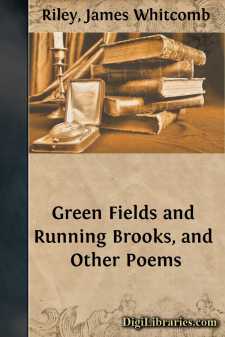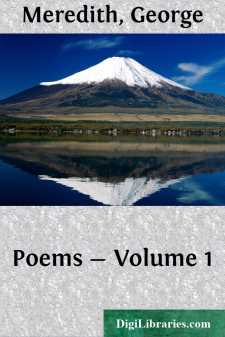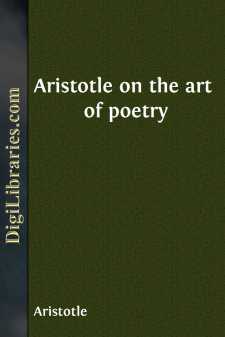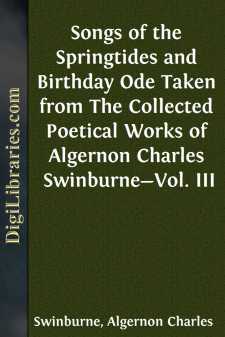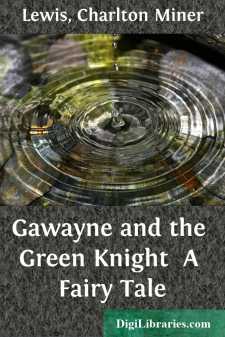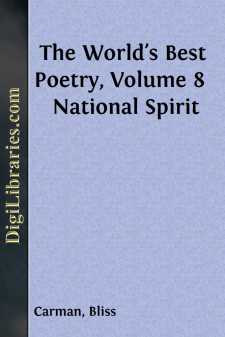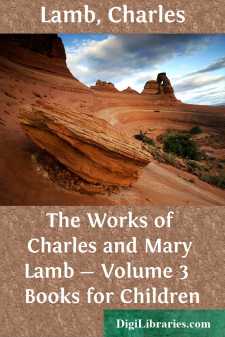Poetry
General Books
Sort by:
GREEN FIELDS AND RUNNING BROOKS Ho! green fields and running brooks! Knotted strings and fishing-hooks Of the truant, stealing down Weedy backways of the town. Where the sunshine overlooks, By green fields and running brooks, All intruding guests of chance With a golden tolerance, Cooing doves, or pensive pair Of picnickers, straying there— By green fields and...
more...
by:
George Meredith
XXXIV O, take to your fancy a sculptor whose fresh marble offspringappearsBefore him, shiningly perfect, the laurel-crown'd issue of years:Is heaven offended? for lightning behold from its bosom escape,And those are mocking fragments that made the harmonious shape!He cannot love the ruins, till, feeling that ruins aloneAre left, he loves them threefold. So passed the old grandfather'smoan....
more...
by:
Aristotle
In the tenth book of the Republic, when Plato has completed his final burning denunciation of Poetry, the false Siren, the imitator of things which themselves are shadows, the ally of all that is low and weak in the soul against that which is high and strong, who makes us feed the things we ought to starve and serve the things we ought to rule, he ends with a touch of compunction: 'We will give...
more...
THALASSIUSUpon the flowery forefront of the year,One wandering by the grey-green April seaFound on a reach of shingle and shallower sandInlaid with starrier glimmering jewelleryLeft for the sun's love and the light wind's cheerAlong the foam-flowered strandBreeze-brightened, something nearer sea than landThough the last shoreward blossom-fringe was near,A babe asleep with flower-soft face...
more...
by:
Anonymous
A LITTLE MOUSE THAT BUILTITSELF A HOUSE IN ACHRISTMAS CAKE. A PRETTY story I will tell, Of Nib, a little Mouse, Who took delight, when none where near, To skip about the house. Her little nose could sniff and smell Where all good things were kept, And in the pantry well she knew That mistress Pussy slept. But, notwithstanding, in she crept, And on the shelf she found A Christmas cake, the top of which...
more...
THE GREEN KNIGHTKing Arthur and his court were blithe and gayIn high-towered Camelot, on Christmas day,For all the Table Round were back again,At peace with God and with their fellow-men.Their shields hung idly on the pictured wall;Their blood-stained banners decked the festal hallLight footsteps, rustling on the rush-strewn floors,And laughter, rippling down long corridors,Attested minds at ease and...
more...
by:
Bliss Carman
THE STUDY OF POETRY. BY FRANCIS HOVEY STODDARD. Clever men of action, according to Bacon, despise studies, ignorant men too much admire them, wise men make use of them. "Yet," he says, "they teach not their own use, but that there is a wisdom without them and above them won by observation." These are the words of a man who had been taught by years of studiousness the emptiness of mere...
more...
THE INVINCIBLE ARMADA. She comes, she comes—the burden of the deeps!Beneath her wails the universal sea!With clanking chains and a new god, she sweeps,And with a thousand thunders, unto thee!The ocean-castles and the floating hosts—Ne'er on their like looked the wild water!—WellMay man the monster name "Invincible."O'er shuddering waves she gathers to thy coasts!The horror that...
more...
by:
Unknown
YE votaries of Fashion, who have it to boast,That your names to posterity will not be lost;That the lastdue honor paidTo the still-blooming Dowager’s gay Masquerade;That the Minister’s Dinner has blaz’d in,That the Countess’s Gala has jingled in rhymes;Oh! tell me, who would not endeavour to please,And exert ev’ry nerve, for rewards such as these?[p6]It was early in Spring—but no matter what...
more...
by:
Charles Lamb
THE TEMPEST (By Mary Lamb) There was a certain island in the sea, the only inhabitants of which were an old man, whose name was Prospero, and his daughter Miranda, a very beautiful young lady. She came to this island so young, that she had no memory of having seen any other human face than her father's. They lived in a cave or cell, made out of a rock: it was divided into several apartments, one...
more...


